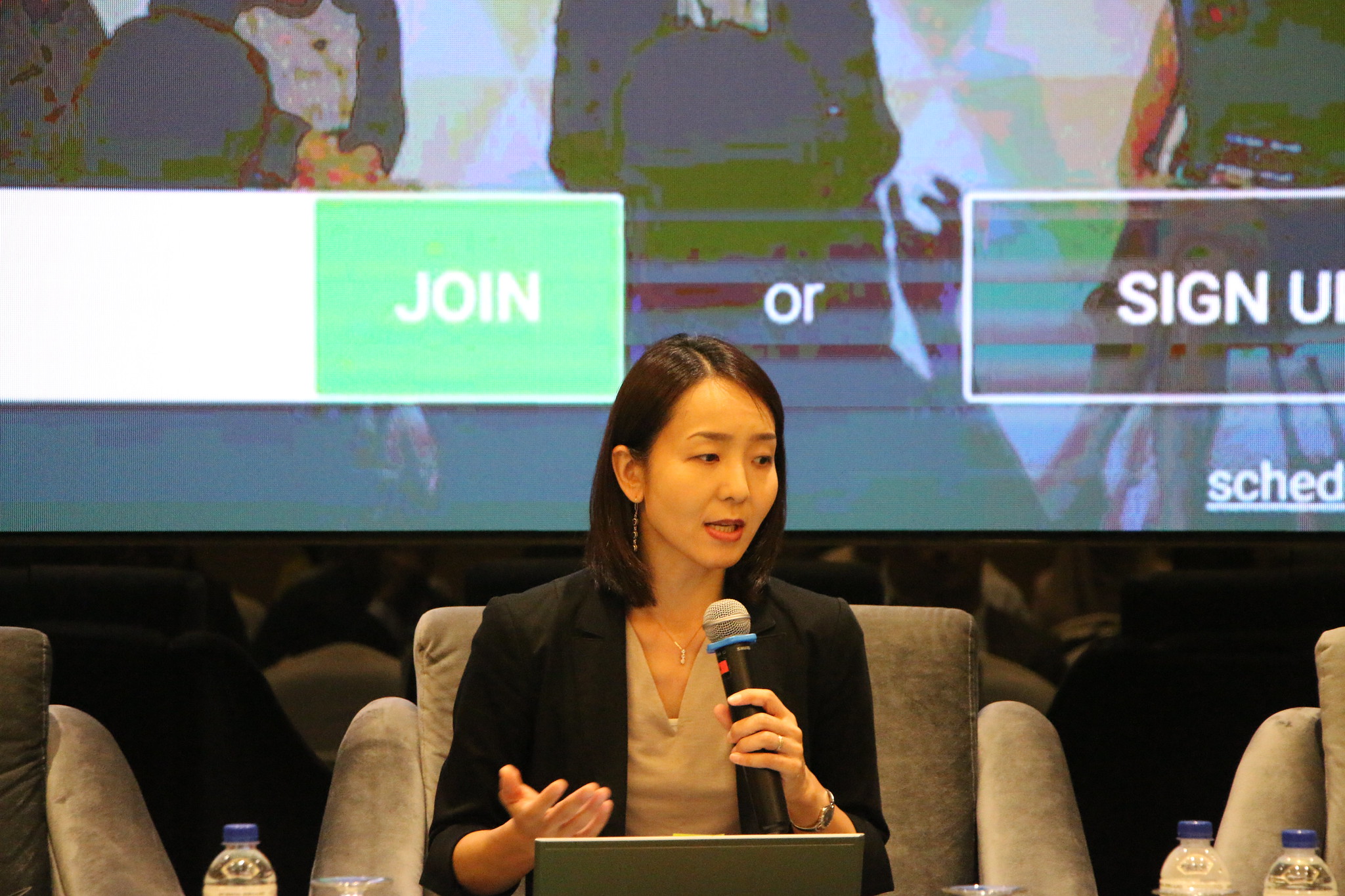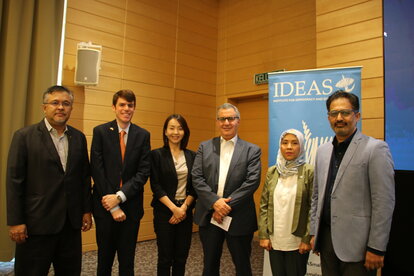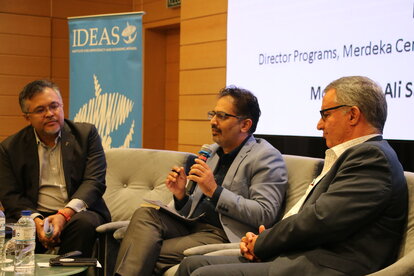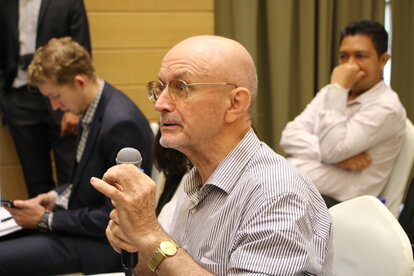Event
Public Forum: Democratic Transitions – Successes and Challenges

On the 10th of July 2019, IDEAS held a public forum that discussed on democratic transitions by looking towards past successes and future challenges. The first panel focused on the phenomenon of Overseas Democratic Assistance from the experience of the Japanese and US, while the second panel of the forum was a discussion on the democratic transitions in Malaysia and Tunisia, moderated by Mr. Ali Salman (Chief Executive Officer of IDEAS).
Professor Ichihara from Hitotsubashi University explained in the first panel that Japanese overseas democratic assistance really started heavily during the Abe presidency in 2012. She argued that the reason Japan provided more democratic assistance was to counter China’s political and economic rise in the region. However, she argued that the primary motivation for assistance is the need to bolster positive Japanese perception as strong allies for the US. The Japanese approach is often thought to be wider than purely democratic ends, as socioeconomic assistance are often justified on the grounds of democratic assistance. The Japanese eschew direct promotion of democratic liberal norms for a more holistic and long-term approach. Professor Ichihara concluded that Japanese Democratic assistance is not an end in itself but only a means to attend to some further goal. However, the outcome has been limited as such an inclusive long-term approach has only manifested into short-term aids. She noted that a dynamic change is slowly happening in Japan whereby there is a growing role in which CSOs (like Amnesty International in Japan) are influencing the government to push for direct democratization assistance to other countries.
Mr. Andrew Curiel, Political Officer from the U.S. Embassy in Malaysia also explained in the first panel on how the United States’ democratic assistance has a longer tradition than the Japanese. He pointed out that the US has consistently provided various democratic assistance post-WWII like the Marshall Plan for example. As it stands, the US is continuing to pursue the goals set by President Kennedy 40 years ago in 140+ countries. He pointed out that a combination of factors contribute to how the US provides democratic assistance. The US will hold meetings with the foreign governments and civil society to know exactly what Malaysia wanted or needed. Second, the US will examine whether such a measure would be feasible. As they are resources from taxpayers, it is important to know if an initiative is likely to bring desired impacts. Andrew pointed out that the democratic transition for many countries, even the US is still not done yet. He said that many countries are still looking at ways in which democracy can be consolidated in order to build better unions.

The second panel of the forum was a discussion on the democratic transitions in Malaysia and Tunisia, moderated by Mr. Ali Salman (Chief Executive Officer of IDEAS), with Dr. Radwan Masmoudi (Founder and President of Centre of the Study of Islam & Democracy [CSID]) and Mr. Ibrahim Suffian (Programme Director of Merdeka Center for Opinion Research) as panellists.
Mr. Ali Salman gave a short opening remarks for the forum, stating that it would be interesting to look into democratisation in Tunisia and Malaysia together that both countries obtained independence at around the same time period (1956 for the former and 1957 for the latter) and had experienced ruling by the same party for a considerably long period. Malaysia, in its own unique manner, has entered its democratic transition phase since the landmark GE14 in May last year. The idea that is being contested right now is: how much of it is new?
Dr. Radwan Masmoudi emphasized that there is no incompatibility between Islam and democracy, yet looking at the reality there are still relatively less democracies among the Islamic states. However, right now, the people in Sudan and Algeria are the evidence that the people in Arab in fact want democracy. He expressed that building democracy is no easy task, and we need to learn from other countries rather than being self-centred. Dr. Masmoudi also shared the top five challenges in Tunisian democratisation at the moment, with building and maintaining national unity as the most pressing one. While there are still some difficulties to be tackled, he concluded that democracy is still possible in Arab.

Mr. Ibrahim Suffian started by presenting a situational analysis on democracies around the world, showing that democracy is in a “recession” for the previous decade. In addition to the falling number of democracies, the rise of China triggered the debate on the real correlation between democracy and standard of living as well. Malaysia had been a hybrid regime, as he put it, where it had civil liberties but with very tight limits. Mr. Suffian expressed his view that there is now a need for compromise and consensus in order to prevent Malaysia from turning back to a hybrid regime. In response to a question from the audience on the possibility of discussion about freedom of religion in Malaysia, he urged that Malaysia needs to work on the area of shared values among difference religions, and build space for dialogues. He highlighted that not every single discussion is to call for immediate action by the government, yet civilised discussion is the effective mean to seek mutual respects among one another in Malaysia.
Mr. Ali Salman also concurred at the end that the key for a full democratisation is the institution reform.
original article : https://www.ideas.org.my/public-forum-democratic-transitions-successes-…
